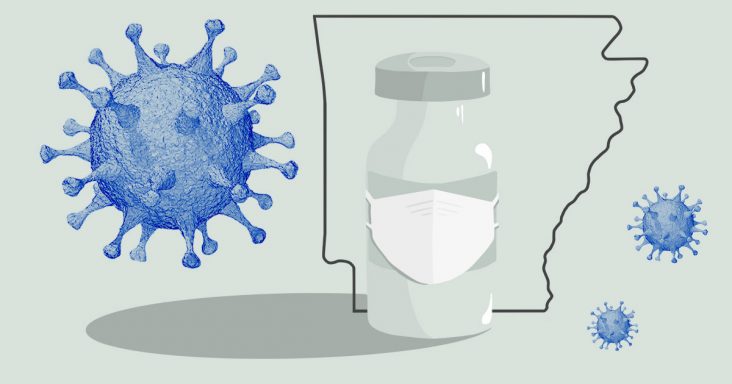Dr. Romero: COVID infections declining, but stress to continue on healthcare system
by January 25, 2022 2:39 pm 773 views

Infection rates in most age groups are declining in Arkansas with the 65-and-older group being flat. But Arkansas Secretary of Health Dr. Jose Romero on Tuesday (Jan. 25) said COVID-19 continues to stress the healthcare system and urged everyone to get vaccinated, especially children.
The Arkansas Department of Health (ADH) on Tuesday reported 7,943 new known cases in the previous 24 hours, bringing the cumulative total to 749,824, or roughly 25% of the state’s population. Three of Arkansas’ 75 counties – Pulaski County had 895 new known cases, Benton County had 749 and Washington County had 712 – accounted for 29.6% of new cases in Tuesday’s report.
Known active cases fell by 3,742 to 89,572, and COVID hospitalizations fell by 32 to 1,785. Patients on ventilators rose by 18 to 233, and deaths rose by 24 to 9,556. Available ICU beds totaled 20 in Tuesday’s report, down from 32 on Monday, according to the ADH report.
Romero said even though infections are declining in Arkansas and other parts of the country, those previously infected will still need medical attention in the weeks to come.
“While the numbers are apparently decreasing at this time, and we do think they will continue to decrease, we need to keep in mind that those individuals that have already been infected and are ill… will require hospitalizations. … And I want to remind individuals that they still need to be vaccinated and get their booster doses,” Romero said during Gov. Asa Hutchinson’s weekly press briefing on Tuesday.
As he has in previous comments, Romero said infections among children during the Omicron surge have “exceeded the high water mark” for pediatric infections and he expects the number to go higher.
“Get the vaccinations for your children. It’s a safe and effective vaccine. It is the way to protect them,” he said.
Gov. Hutchinson and Romero were also asked about the new Omicron variant, now referred to as BA.2, reported in Asia and Europe. Romero said state health officials are “aware of it and tracking” it.
Robert Garry, a virologist at Tulane University School of Medicine, told the Washington Post the variant does not show signs of being a new problem.
“Variants have come, variants have gone,” Garry said in the news report. “I don’t think there’s any reason to think this one is a whole lot worse than the current version of omicron.”
Gov. Hutchinson reiterated that vaccines are the best medicine against new variants and the best way to “manage” the COVID disease.
“We don’t know what will come next. We do know the best chance is vaccination to prepare yourself for what might come down the road. So we’ll see. The whole country is ready to manage this disease, this virus, versus the current state of emergency. And hopefully with the vaccinations that we have that we’ll be able to manage this as other health needs that we have in our society,” Gov. Hutchinson said.
A report published Tuesday by the University of Arkansas for Medical Sciences suggests the SARS-CoV-2 coronavirus that causes COVID has a limited genetic range for new mutations that should make it easier for drug and vaccine makers to fight against it.
